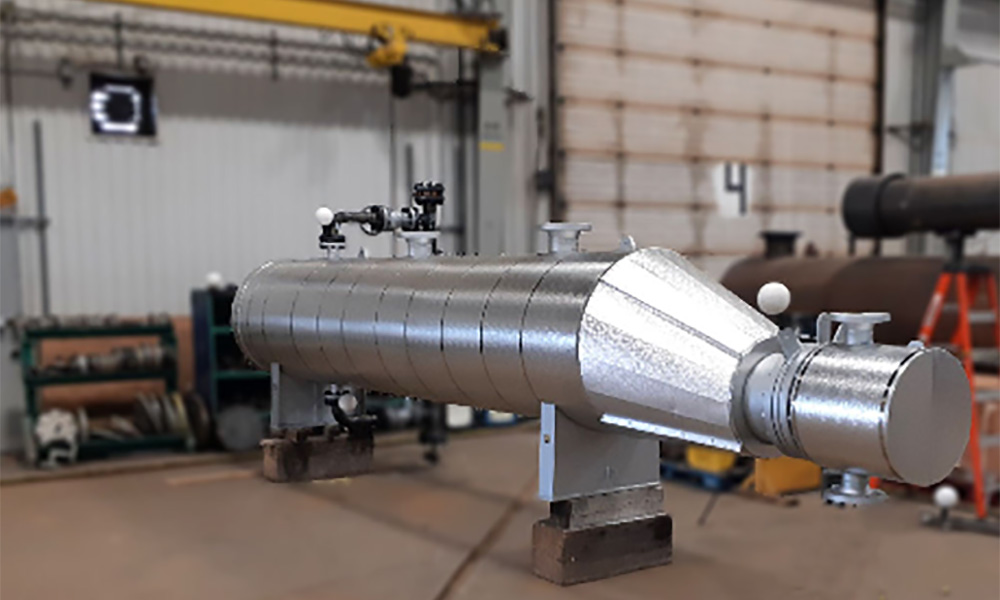In industrial equipment, innovative technologies are essential to enhance efficiency and sustainability. One such technology is the microchannel heat exchanger, which offers various advantages that significantly impact industrial thermal management. In this article, we will discuss the key benefits that make microchannel heat exchangers a preferred choice in various industrial applications.
Compact Design and Space Efficiency
One of the primary advantages of microchannel heat exchangers is their compact design. The microscale channels intricately woven into the exchanger allow for a higher surface area-to-volume ratio. This unique design enables the creation of smaller and lighter heat exchangers without compromising their thermal efficiency. The compact nature of microchannel heat exchangers makes them a substantial advantage in industries where space optimization is critical, allowing for more versatile integration into diverse systems.
Enhanced Heat Transfer Efficiency
Microchannel heat exchangers excel in promoting turbulent flow within the small channels. This turbulence enhances convective heat transfer between the fluid streams, resulting in significantly improved heat transfer efficiency. The microscale design encourages rapid and efficient thermal exchange, making microchannel heat exchangers ideal for applications requiring precise temperature control and quick heat dissipation. This advantage is particularly crucial in industries where maintaining optimal operating temperatures is paramount for equipment performance and longevity.
Reduced Material Usage and Environmental Impact
The compact nature of microchannel heat exchangers not only contributes to space efficiency but also leads to a reduction in material usage. This reduction has economic and environmental implications, as it aligns with the principles of sustainability. By minimizing the raw materials required for manufacturing, microchannel heat exchangers contribute to resource conservation and lower production costs. This advantage resonates with industries increasingly seeking eco-friendly and cost-effective solutions.
Improved Thermal Performance Under Extreme Conditions
Microchannel heat exchangers demonstrate exceptional thermal performance, particularly in managing high heat fluxes and temperature differentials. Their ability to handle extreme thermal conditions makes them suitable for demanding industrial processes, such as those encountered in the aerospace, automotive, and electronics industries. The robust thermal performance of microchannel heat exchangers ensures reliability and efficiency, even in challenging environments where traditional heat exchangers may fall short.
Versatility Across Industries
Microchannel heat exchangers find versatile applications across a spectrum of industries, showcasing their adaptability and efficiency. In the automotive industry, they play a pivotal role in cooling systems for engines and electric vehicle batteries. The compact size and efficient heat transfer properties contribute to improved overall performance in modern vehicle designs. In the electronics sector, microchannel heat exchangers are integral to managing heat generated by electronic components, ensuring the reliability and longevity of electronic devices.
Energy Savings in HVAC Systems
The advantages of microchannel heat exchangers extend to heating, ventilation, and air conditioning (HVAC) systems. Their compact design and enhanced heat transfer capabilities lead to energy savings in both residential and commercial settings. The efficiency of microchannel heat exchangers contributes to improved HVAC system performance, translating to reduced energy consumption and lower operating costs.
Key Role in Renewable Energy Applications
Microchannel heat exchangers play a vital role in various renewable energy systems, including solar thermal and geothermal applications. Their efficiency in transferring heat is instrumental in harnessing and utilizing sustainable energy sources. The ability of microchannel heat exchangers to handle thermal fluctuations ensures optimal performance in renewable energy systems, contributing to the shift towards cleaner and more sustainable energy solutions.
Conclusion
In conclusion, the advantages of microchannel heat exchangers make them a transformative solution in industrial thermal management. From their compact design and enhanced heat transfer efficiency to their role in reducing material usage and environmental impact, microchannel heat exchangers are at the forefront of technological advancements. As industries continue to prioritize efficiency, sustainability, and versatility, the adoption of microchannel heat exchangers is poised to grow, driving innovation and improvements in industrial processes.














